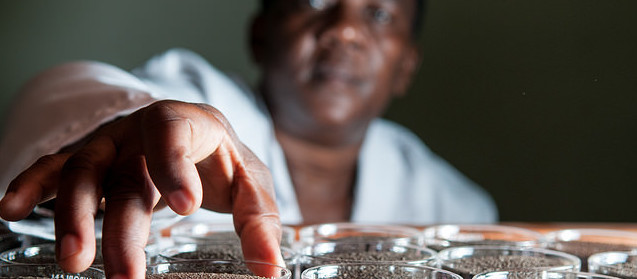
The status of soil has always profoundly shaped the fate of society. Yet, the modern world seems to have lost sight of this fact. Though essential for meeting our food needs, soils are often ignored or undervalued in agricultural development programs and investment strategies. ronically, this lapse comes at a time when soil health is more important than ever for confronting enormous global challenges – rising food demand, climate change, and so forth – and by implication, for meeting the Sustainable Development Goals that the United Nations is expected to launch in 2015.
The UN has declared 2015 the International Year of Soils, creating an opportunity to renew global awareness of the vital link between healthy, fertile soils and prosperous societies. “Dirt is not dirty; it is the source of life,” Indian activist Satish Kumar reminds us. But only if we bring degraded soils to life through better management, can they store water, deliver nutrients to crops, curb damage from natural disasters like floods, harbor biodiversity, capture carbon, and provide all the other ecosystem services that are essential for sustaining and improving life.
From farm plots to whole landscapes
The International Center for Tropical Agriculture (CIAT) has worked steadily and strategically to improve soil management over several decades. Engaging with many partner organizations, our researchers have achieved key advances – from highly diverse rural settings across Africa to remote upland areas of Asia and the hillsides and vast savannas of Latin America.
CIAT has the largest soils team in the CGIAR Consortium – the global research partnership of which the Center is a member – and also the most diverse, including not only soil scientists but also ecologists and anthropologists. Their job is mobilizing the expertise and generating the knowledge that decision makers need to promote sustainable, climate-smart management of rural land, so that it can deliver greater economic and social benefits. The work of our soils team is guided by the CIAT Strategy 2014-2020, which envisions a critical role for this research in “building an eco-efficient future.”
To radically alter current patterns of soil and land degradation, we need to act both locally and globally. For this reason, the Center has broadened the scope of its soils research to encompass not only individual farm plots but entire landscapes across the tropics. CIAT’s pioneering soils research is organized around three interrelated themes.
Better choices for greater benefits
A key feature of CIAT’s research on soil and land management is that it integrates science with the knowledge of multiple actors – including farmers, other land users, public and private investors, and policy makers – through a transformative approach that increases the likelihood of sustainable outcomes.
Many of the decisions that must be made – whether by farmers or policy makers – revolve around economic issues. What are the costs of change, who benefits, and who pays? How can societies achieve more equitable sharing of benefits from ecosystem services (such as carbon sequestration and water quality regulation) to improve human well-being? How can we create stronger incentives for improved land management? What are the best ways for smallholder farmers to restore degraded land and create environmental benefits, while also boosting incomes and food security? And how can these same farmers afford to maintain soil fertility and agricultural productivity, and also enhance the resilience of farming in the face of climate change?
CIAT´s research seeks answers to these questions, which are being brought into sharp focus by recent developments, such as large external investments in agricultural growth corridors. While creating new market opportunities for smallholder farmers, these investments could also have negative impacts, including land degradation, habitat conversion, water scarcity, land tenure concentration, and the replacement of diverse production systems with large-scale monoculture. CIAT scientists are working with the Southern Agricultural Growth Corridor of Tanzania (SAGCOT) to help improve land-use planning, provide information in support of investment decisions, and monitor social and environmental conditions.
Contributing to CGIAR Research Programs
Soils research is critical for realizing CIAT’s vision of eco-efficient agriculture. As a cross-cutting activity, this work is also a fundamental part of CGIAR’s global research agenda. CIAT soil scientists contribute specifically to the following CGIAR Research Programs:
Read the full news on CIAT.
